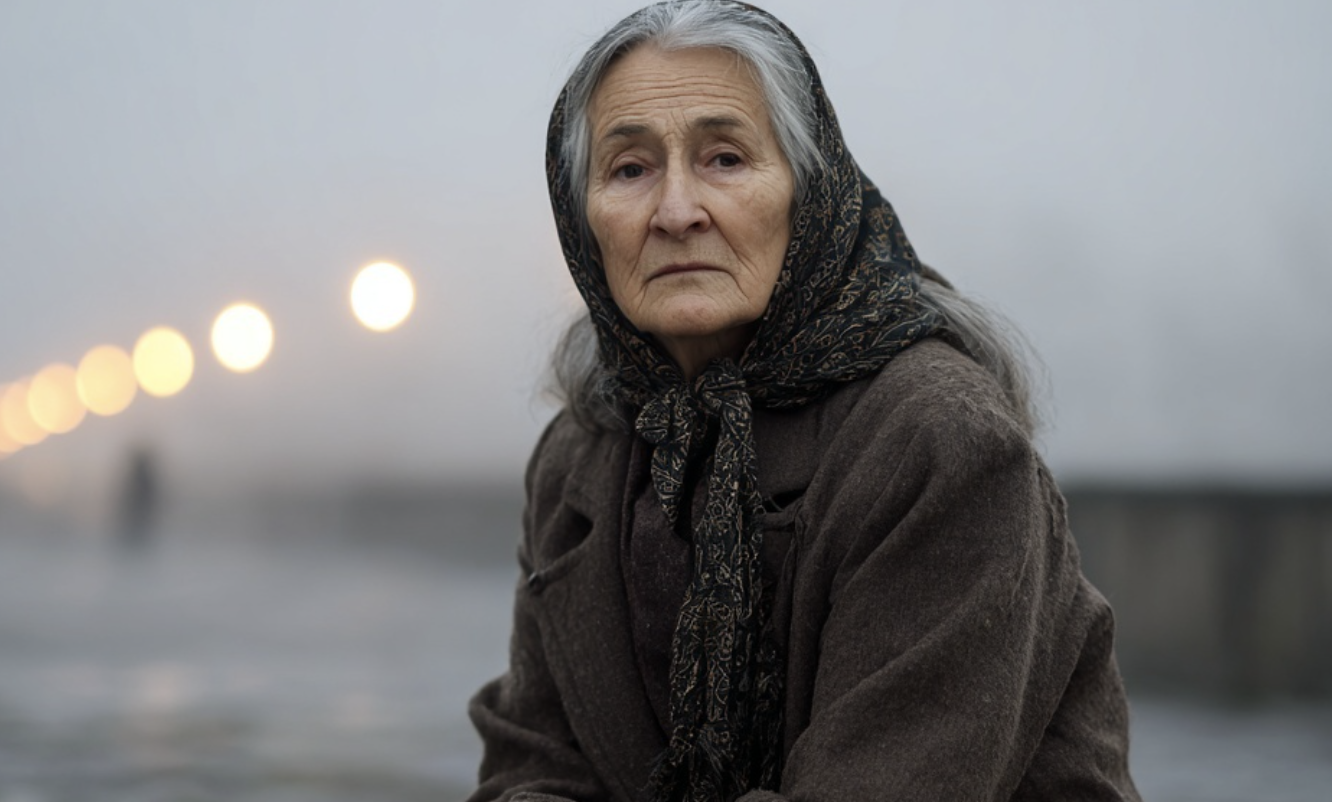After my husband’s funeral, my son drove me to the edge of town and said, “This is where you get off, Mom. We can’t support you anymore.”
I said nothing. I had been guarding a secret for years—one my ungrateful son would one day come to regret.
It drizzled the morning we buried Ramón.
My little black umbrella couldn’t cover the hollowness in my chest. I trembled, incense burning between my fingers, staring at the raw, damp earth. My companion of nearly forty years—my beloved Ramón—had become a handful of cold soil.
There was no time to grieve.
Jun, my eldest—the one Ramón trusted without question—took the house keys before the mourners had even finished their coffee.
Years earlier, while he was still healthy, Ramón had said, “We’re getting old. Put the title in Jun’s name so he’ll be responsible.”
What mother argues with love? We transferred the house and the land to our son.
On the seventh day after the burial, Jun invited me for a drive “to clear my head.” I didn’t know I was headed for a knife in the back.
He stopped near an abandoned jeepney stop on the outskirts and said, flat and final, “Get out here. My wife and I can’t keep you. From now on, you’re on your own.”
My ears rang. The world tilted. But his eyes were hard; he would have pushed me out if I’d hesitated.
I ended up on a low stool outside a small shop, clutching a cloth bag with a few clothes. The house where I had nursed my husband and raised my children no longer belonged to me; the deed had Jun’s name on it. I had no right to return.
They say a widow still has her children. Sometimes having children feels exactly like having none.
Jun had cornered me. But I wasn’t empty-handed.
In the pocket of my blouse I kept a bank passbook—our life’s savings, the money Ramón and I had put away peso by peso, amounting to tens of millions. We told no one. Not our children. Not our friends. No one.
“People behave when they think you have nothing to give,” Ramón once told me. I chose silence that day. I wouldn’t beg. I wouldn’t reveal a thing. I wanted to see what life—and Jun—would do next.
The first evening, the shop owner, Aling Nena, took pity and brought me hot tea. When I told her my husband had died and my children had left me, she sighed. “There’s plenty of that now, hija. Children count money better than love.”
I rented a tiny room, paying from the interest the savings earned. I kept my head down. Old clothes. Cheap food. No attention.
At night, curled on a wobbly bamboo bed, I missed the creak of our ceiling fan and the smell of Ramón’s ginger salad. The missing hurt, but I told myself: as long as I breathe, I move forward.
I learned the rhythm of this new life.
By day I worked at the market—washing greens, hauling sacks, wrapping produce. The pay was small. It didn’t matter. I wanted to stand on my own feet, not on anyone’s pity. Vendors began to call me “Mama Teresa.” None of them knew that each evening I opened my passbook for a heartbeat, then tucked it away again. That was my quiet insurance.
One afternoon I met an old friend, Aling Rosa, from my girlhood. I told her only that Ramón had passed and times were difficult. She gave me a place in their family carindería—food and a cot in the back, in exchange for work. It was hard, honest, and it kept me fed. It gave me one more reason to keep my secret close.
News of Jun still found me. He and his wife lived in a big house, drove a new car—and he gambled. “I think he’s pawned the title already,” an acquaintance whispered. My chest tightened, but I did not call. He had left his mother at a roadside; what more was there to say?
A man in a crisp shirt came to the carindería one day—Jun’s drinking companion. He looked at me a long time and asked, “You Jun’s mother?” I nodded.
“He owes us millions,” the man said. “He’s hiding. If you still want him, save him.” He gave a bitter smile. “I’m tapped out.” Then he left.
I stood where he’d left me, dish rag in hand, thinking of my son—the boy I’d rocked to sleep, the man who’d pushed me from the car. Was this justice? Was it punishment? I didn’t know.
Months passed. Jun finally appeared—thin, hollow-eyed, unshaven. He fell to his knees as soon as he saw me.
“Mom, I was wrong,” he choked. “I was rotten. Please, save me this once. If you don’t, my family is finished.”
Memories rose like tidewater: my nights alone, the empty road, the ache. Then Ramón’s last words whispered through me: “Whatever he becomes, he is still our son.”
I said nothing for a long while. Then I went to my room, took out the passbook—our lifetime savings—and set it on the table between us.
“This is the money your father and I saved,” I said evenly. “I hid it because I feared you wouldn’t value it. I’m giving it to you now. But listen to me: if you grind your mother’s love under your heel again, no fortune will ever lift your head high.”
Jun’s hands shook as he took the passbook. He cried like a boy in the rain.
Maybe he will change. Maybe he won’t. But I have done what I could as a mother.
And the secret, at last, was told—exactly when it was needed.
